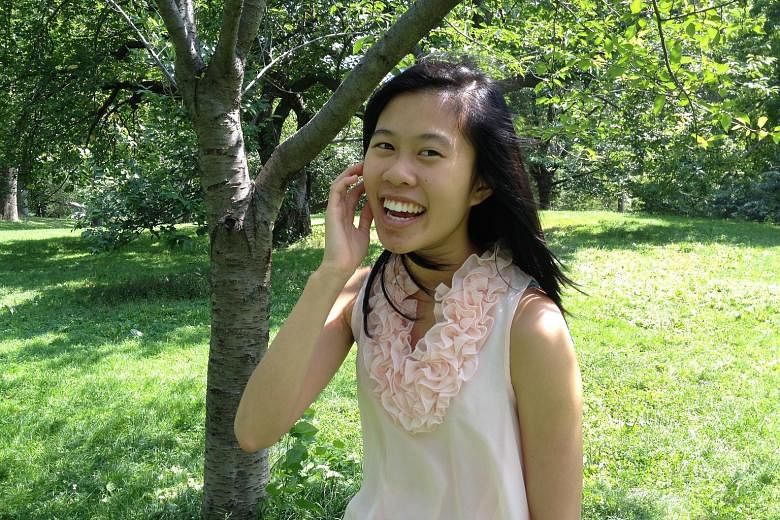Singaporean teenager Catherine Lai might have found new antibiotics for tackling multidrug-resistant superbug Streptococcus pneumoniae, which causes pneumonia.
The 18-year-old, who started her research at 15, even cut off cable television and games such as Candy Crush, transforming her bedroom in New York into a laboratory, filling "every inch with computer servers and routers".
She developed a software platform and a sequence of steps to screen millions of compounds that could combat the enzyme which allows the pneumonia bacteria to thrive in the human body.
Her research clinched her a spot as a finalist in a prestigious American competition last year, regarded by many as the "junior Nobel Prize". Her prize money was US$7,500 (S$10,500).
Based in the United States, the Brearley School student was one of 40 high school finalists in the 2016 Intel Science Talent Search.
The alumni of the competition, which dates back to 1942, have gone on to win distinguished honours, including 12 Nobel Prizes for the sciences.
Catherine described qualifying for the competition as a finalist as "a great honour", adding that her "main goal was to find a potential cure" in an area the World Health Organisation (WHO) has described as being in urgent need of more research and development.
In February, WHO said new antibiotics need to be developed urgently to combat multidrug-resistant bacteria that pose a threat in hospitals, nursing homes and other care facilities. These include Acinetobacter, Pseudomonas and various Enterobacteriaceae that can cause severe and deadly infections such as pneumonia and septicaemia.
WHO has described these "priority pathogens" as the greatest threats to human health.
Catherine's interest in such work was "fired up" at 15 after reading an article on how nose and throat cancer affects millions in Asia with a certain genetic make-up.
She said she learnt that few pharmaceutical companies invest in finding cures to these illnesses.
At around the same time, she was exposed to bioinformatics, which uses computers to solve tough biology problems, at her high school.
She then picked up programming and bioinformatic protocols on her own, and actively used Stack Exchange - an online platform where scientists help one another. She also got help from teachers, and scientists from Germany, China and the US.
With four published papers to her name, Catherine has also identified a set of disregulated genes linked to nasopharyngeal cancer. The results were published in the scientific journal Computers In Biology And Medicine.
-
4
-
Number of published papers to 18-year-old Catherine Lai's name.
She said: "The best thing about the Intel Science Talent Search competition is the publicity that it will give to my other work on under-researched diseases."
Her mentor at The Brearley School, Dr Jean S. Drew, said Catherine is an "independent and creative scientific thinker".
She added: "Catherine is the most brilliant and creative science student that I have taught in my 24-year career. I know of no other student who has made such a significant contribution to medical science without the help of any scientific research supervisor."
Born in Singapore, Catherine studied at Chiltern House Preschool before moving to the US with her family when she was five.
Her father Richard Lai was doing his doctorate at Harvard. The 54-year-old and his wife are managing partners in their hedge fund.
An only child, Catherine is also an athlete, and a pianist and flautist who performed at Carnegie Hall. She also knows six languages, including Latin and Korean.
She returns to Singapore every year to visit her extended family.
She said: "I remember enough about Singapore to still fantasise about durians, Yakult and potong ice cream."
On his daughter's success, Mr Lai said: "The initial feeling is one of vindication, because we resisted hiring tutors and coaches for Catherine. And as parents who've made this choice would know, there's always a gnawing feeling that the kid might not get into a good college."
Both he and his wife do not understand their daughter's work as they are from different fields, so they "can only admire from afar".
The Intel Science Talent Search - described as a forum and incentive for American high school seniors to complete an original research project that is judged by professional scientists, mathematicians and engineers - offers three top awards of US$150,000.


